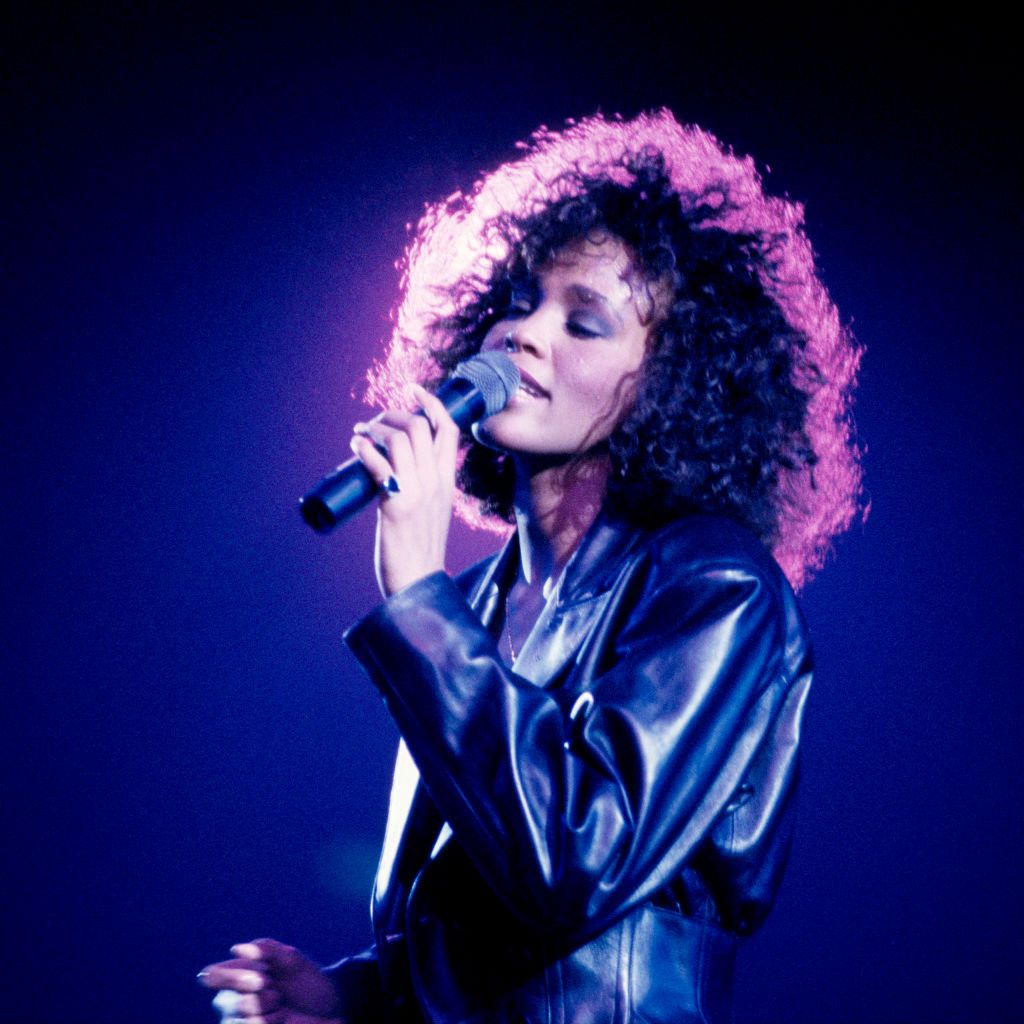
Source: Graham Wiltshire / Getty
The 1980s was a whole mood. The era was loud, passionate and filled with self-expression. The decade has its fair share of neon color and eccentric fashion, iconic pop-cultural moments and most of all, it delivered some of the dopest divas in R&B history. Yes, Whitney Houston monopolized mainstream music, and for a spell, Janet Jackson had Control of the charts. But these 12 songstresses produced playlists for the park jams. Their voices turned up the barbecue. Their soulful songs became the soundtrack to our lives. In the 80s, we celebrated them with two-steps. Today we pay homage to them for Black Music Month.
Evelyn ‘Champagne’ King
The moment “Love Come Down” plays, you already know what it is. Get ready to do the Smurf or the wop dance. King had already blew up with the release of her disco-era song titled “Shame,” when “Love Come Down” was released off of her fifth studio album in July 1982. The hit was instantly summertime jam. According to Genius, “In the United States, it reached number one on the Billboard Black Singles and Hot Dance/Disco charts and number 17 on the Billboard Hot 100” while climbing the charts into the top 20 in several other countries. More interestingly, “In 2014, ‘Love Come Down’ was placed on Bruce Pollock’s list of ‘The 7,500 Most Important Songs of 1944-2000.’”
Stephanie Mills
Mills is an American singer, songwriter, and performer who initially rose to fame playing the character of Dorothy in The Wiz on Broadway. Her run in the play went from 1974-1979. When she dropped “Never Knew Love Like This Before” it blazed Billboard and pop music charts. The hit record won a Grammy Award for Best Female R&B Vocal Performance in 1980 and beat out her contemporaries,
Shirley Murdock
Murdock’s signature hit “As We Lay” was originally released in 1985. As a ballad about two people who spent a night of passion together despite the fact that they’re both in separate romantic relationships, the song went on to reach within the top 10 of the R&B charts in 1986, #23 on the Pop chart, and #21 on the Adult Contemporary chart early the following year.
While she went on to feature in other songs, provide vocals for other artists, and release additional music — even releasing a gospel album in 2002 — Murdock’s “As We Lay” will always be remembered as one of her greatest hits.
Patrice Rushen
If you didn’t know, Rushen is a powerhouse musician. Performing and working as a jazz pianist, R&B singer, composer, record producer, and songwriter only encompasses some of her many musical talents. Co-composing and writing the 1982 iconic song “Forget Me Nots,” the single went on to land Rushen a Grammy Award nomination for Best Female R&B Vocal Performance. As truly one of the great musical artists of our time, Rushen also inspires others as a musical educator at colleges and universities across the country.
Cheryl Lynn
Lynn was another amazing singer whose transition from the disco era of the 1970s, to the pop and soul-infused 80s, produced hits that still bang today. Lynn’s 1978 banger “Got to Be Real” proved to be a classic and in 1983, her dance track “Encore” killed the game. The song went on to hit #1 on the Billboard chart and serve as the first hit created by Jimmy Jam and Terry Lewis as producers.
Deniece Williams
Described as one of the “one of the great soul voices” by the BBC, Williams is a singer, songwriter, producer. As detailed by Genius, her 1984 song “Black Butterfly” hit #22 on Billboard’s R&B Singles chart in 1984. The outlet noted that the song is about “change and transition into life, especially from an African American perspective” — and that it “carries all the souls of our ancestors and their struggles but reminds us that through it all there is a transformation of change and perseverance.”
Cherrelle
Cheryl Anne Norton, better known as Cherrelle, rose to fame in the mid-80s. Thanks to the help of her iconic song “Saturday Love” — off her album High Priority, released in 1985, and produced by Jimmy Jam and Terry Lewis. The song did numbers and peaked at number two on the record charts. The Album went gold.
Anita Baker
Baker is highly regarded as one of the queens of soulful, romantic and passionately sung ballads. Her sophomore album Rapture was her mainstream breakout record as a vocalist. “Sweet Love,” the album’s first song, “peaked at #8 on the Billboard Hot 100, #3 on Billboard’s Adult Contemporary chart, and #2 on Billboard’s R&B chart in 1986.” Additionally, it “won a Grammy Award in 1987 for ‘Best R&B Song,’” according to Genius.
Jody Watley
Watley is a genre-bending and versatile diva. In addition to being a member of the popular band Shalamar, Watley’s successful solo career as a singer, songwriter, and producer landed her a Grammy for “Best New Artist” 1988. Part of the success was thanks to her 1987 song “Don’t You Want Me.”
Since then, Watley has gone on to gain many other awards and achievements, including “a Lifetime Achievement Award from Billboard magazine” and recognition “as a Crossover Music Icon Honoree for her groundbreaking achievements and influence.”
Meli’sa Morgan
Not only did Morgan hip us to the wonder of weaves and wigs, she gave us certified bops and ballads. As one of the R&B/soul songstresses of the decade, Morgan achieved success both as a solo singer and within a group. As the lead singer of Shades of Love, Morgan topped the charts with the band’s hit “Body to Body (Keep in Touch)” in 1982. She climbed up the charts again as a solo artist when she released a cover of Prince’s “Do Me, Baby” which dropped in 1986.
Phyllis Hyman
Born in 1949, Hyman was a multi-hyphenate who performed as a singer, songwriter, and actress. Her hits spanned the 1970s through the early ’90s. The dramatic and passionately sung song “Living All Alone” told the story of a woman who reminisced on her past relationship but was dealing with the grief of heartbreak and loneliness. Hyman passed away in 1995.
Pebbles
The first single off of Pebbles’s 1987 self-titled, debut album was a nod to sisterhood. According to Genius, the song “Girlfriend” gained the #5 spot on the Billboard Hot 100 Chart, “landed #24 on Billboard’s Hot Dance Music/Club Play chart, topped Billboard’s Hot Dance Music/Maxi-Singles Sales chart, and topped Billboard’s Hot Black Singles chart for 2 weeks in February of 1988.”


